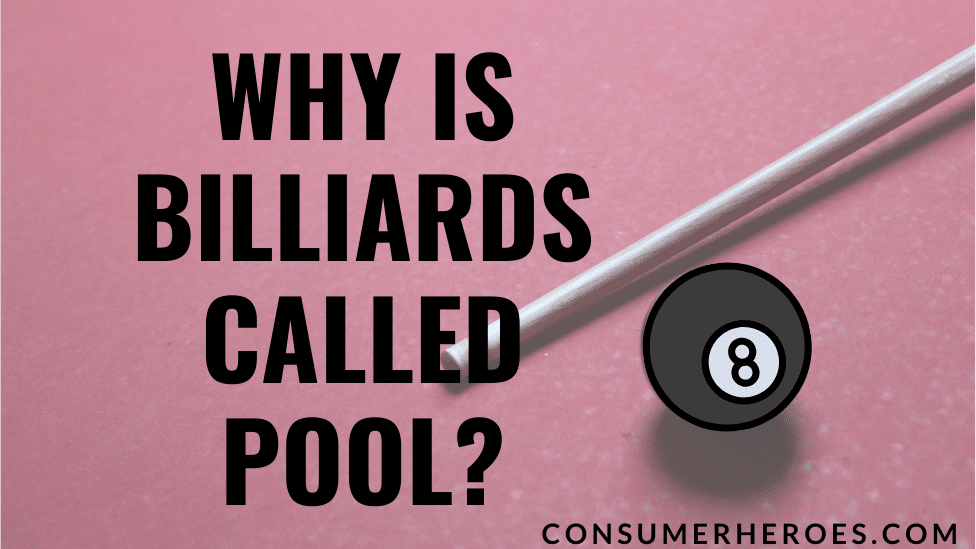Billiards, also known as pool, is a popular game played in various parts of the world. It is a game of strategy, skill, and precision that has been enjoyed by people for centuries. However, many people wonder why it is called pool. The answer to this question is not straightforward, but it is believed to have originated from a few different sources.
One theory suggests that the term “pool” comes from the French word “poule,” which means “hen.” In the 19th century, a game called “poule” was played in France, where players would place their bets in a pot known as a “poule.” This pot was then awarded to the winner of the game. Over time, the game evolved and became known as “pool” in English-speaking countries.
Another theory suggests that the term “pool” comes from the fact that the game was originally played on a pool table. The table was designed with pockets or holes in each corner, which were filled with water to keep the balls clean. As the game became more popular, the pockets were removed, but the name “pool” remained. Regardless of its origins, the name “pool” has become synonymous with billiards, and the game continues to be enjoyed by people of all ages and skill levels.
Origin of the Term ‘Pool’
The exact origin of the term ‘pool’ in reference to billiards is not entirely clear. However, there are a few theories that attempt to explain the origin of the term.
One theory suggests that the term ‘pool’ may have originated from the French word “poule,” which means “stake” or “pot.” In early billiards games, players would place their bets into a pot or pool, and the winner would take the entire pot at the end of the game. Over time, the term ‘pool’ may have been adopted to refer to the game itself.
Another theory suggests that the term ‘pool’ may have originated from the fact that billiards was often played in poolrooms. These poolrooms were typically large, open spaces that were used for a variety of purposes, including gambling, drinking, and socializing. The term ‘pool’ may have been adopted to refer to the game played in these poolrooms.
Regardless of its origin, the term ‘pool’ has been used to refer to billiards for over a century. Today, the term is widely recognized and used throughout the world to describe the game of billiards.
Billiards vs Pool
Billiards and pool are often used interchangeably, but they are actually two different games. While both are cue sports played on a table with balls, there are some key differences between the two.
Billiards
Billiards is a game played on a table with no pockets and three balls: a white ball, a yellow ball, and a red ball. The object of the game is to score points by hitting the opponent’s ball with the white ball and making it contact the red ball. The player who scores the most points at the end of the game wins.
Billiards is often considered the more traditional of the two games, with a longer history and more formal rules. It is also played at a higher level of skill, with players needing to master a variety of shots and techniques to succeed.
Pool
Pool, on the other hand, is a game played on a table with six pockets and a set of numbered balls. The object of the game is to use the cue ball to pocket the other balls in a specific order, with the player who pockets the 8-ball last winning the game.
Pool is generally considered the more casual of the two games, with more relaxed rules and a wider range of skill levels. It is also a more social game, often played in bars and pool halls as a form of entertainment.
While the two games share some similarities, they are distinct in their own right. Understanding the differences between billiards and pool can help players choose which game to focus on and improve their skills accordingly.
Evolution of the Game
Billiards has a long and fascinating history that dates back to the 15th century. The game has evolved over time, with many different variations and styles being played throughout the centuries.
One of the earliest forms of billiards was known as “ground billiards,” which was played outdoors on a lawn. This game was similar to croquet, with players using mallets to hit balls through hoops. Over time, the game evolved to be played indoors on a table, with players using cues to strike balls into pockets.
In the 19th century, billiards became a popular pastime in the United States, with the game being played in pool halls and saloons across the country. It was during this time that the game began to be referred to as “pool,” due to the fact that players would often place bets on the outcome of the game. The money that was bet would be placed in a “pool,” and the winner would take home the entire amount.
As the game continued to gain popularity, new variations were introduced, including eight-ball, nine-ball, and straight pool. These variations added new rules and challenges to the game, making it even more exciting and competitive.
Today, billiards remains a popular game around the world, with millions of people enjoying the sport in both casual and competitive settings. While the game has evolved significantly over the centuries, its core principles and mechanics remain largely the same, making it a timeless classic that will continue to be enjoyed for generations to come.
Cultural Impact of Pool
Pool has had a significant cultural impact on society. It has been portrayed in numerous movies, TV shows, and books, and has become a beloved pastime for many people around the world.
One of the most significant cultural impacts of pool is its association with the American working class. In the early 20th century, pool halls were often found in working-class neighborhoods, and the game was seen as a way for blue-collar workers to unwind after a long day at work. This association with the working class has persisted to this day, and pool halls are still often seen as a place for regular folks to socialize and have fun.
Another cultural impact of pool is its association with gambling. While pool is primarily played for fun, it is also a popular game for betting. This has led to a certain level of controversy over the years, with some people arguing that pool halls are dens of iniquity where illegal gambling takes place. However, the vast majority of pool players simply enjoy the game for its own sake, and have no interest in gambling.
Finally, pool has had a significant impact on popular culture. It has been featured in countless movies and TV shows, from “The Hustler” to “The Color of Money” to “The Simpsons.” It has also been the subject of many books and articles, and has even spawned its own subculture of pool enthusiasts.
Overall, pool has had a lasting cultural impact on society, and will likely continue to be a beloved pastime for many years to come.
Modern Day Pool
In the modern era, pool has become a popular pastime for people of all ages and backgrounds. With the rise of technology and social media, pool has become more accessible than ever before. Players can now connect with one another from around the world and share tips and tricks to improve their game.
Popularity
Pool has gained popularity in recent years due to its accessibility and the social aspect of the game. Many bars and restaurants now have pool tables available for customers to play, making it a popular activity for groups of friends to enjoy together. Additionally, the rise of professional pool players and tournaments has helped to increase the visibility of the sport.
Competitions and Tournaments
Competitions and tournaments have become a major part of the pool scene. There are now numerous professional pool organizations that host tournaments and competitions around the world. The most prestigious of these is the World Pool-Billiard Association (WPA), which hosts the World Pool Championship each year.
In addition to professional tournaments, there are also amateur leagues and competitions for players of all skill levels. These events provide an opportunity for players to test their skills against others and improve their game.
Overall, the modern day pool scene is thriving and continues to grow in popularity. With the accessibility of the game and the rise of professional competitions, it is likely that pool will continue to be a popular pastime for years to come.
Conclusion
In conclusion, the origins of the term “pool” to describe billiards are not entirely clear. It is likely that the term evolved from various meanings of the word “pool” that referred to a group of people contributing to a common fund. Some sources suggest that the term may have originated from the French word “poule,” which means “hen” and was used to describe a group of people who contributed money to a common pot.
Regardless of its origins, the term “pool” has become synonymous with billiards in many parts of the world. Today, the game is enjoyed by millions of people, and there are many different variations and styles of play. From the classic game of eight-ball to the more challenging game of nine-ball, billiards continues to be a popular pastime for people of all ages and skill levels.
While the exact origins of the term “pool” may never be known, one thing is certain: the game of billiards has a rich and fascinating history that spans centuries. Whether you are a seasoned pro or a beginner just learning the game, there is always something new to discover and enjoy about this timeless pastime.







